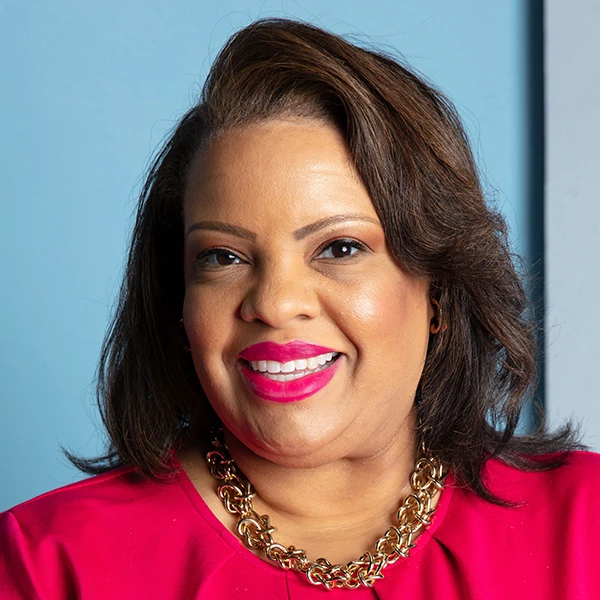Key takeaways:
Using GoodRx coupons can help you save money on prescription medications if you no longer have Medicaid and must pay out of pocket for medications at the pharmacy.
Your prescriber may be willing to give you more prescription refills so you can stock up on your medications before you lose coverage. Extending your prescriptions can also help you get your medications without the cost of a visit with a healthcare professional.
Switching from brand-name to generic medications or finding lower-cost alternatives can help make your prescriptions more affordable while you navigate losing Medicaid coverage.
Medicaid provides comprehensive, low-cost health insurance to about 72 million people in the U.S., according to recent data. It’s also the nation’s largest public health insurance program, providing coverage to more people than Medicare.
Another aspect of Medicaid is the Children’s Health Insurance Program (CHIP), which provides coverage to an estimated 7 million people enrolled in the U.S. Also administered by states and territories, CHIP covers youngsters from low-income families that earn too much to qualify for children’s Medicaid, but also can’t afford private insurance.
In addition to providing access to care and services, many Medicaid enrollees rely on their insurance to greatly reduce their out-of-pocket costs for prescription medications. Affording medications can be the most urgent need for people who lose Medicaid.
Here’s what you need to know about accessing the prescription medications you need if you no longer have Medicaid coverage.
What should you do about your prescriptions if you’ve lost Medicaid coverage?
For many people who lose Medicaid, the most immediate need is filling prescriptions. Even if you no longer have prescription medication coverage and are unsure of when you will, you can ask your prescriber(s) to add a 90-day fill or several refills for your medications.
Here are some other tips for accessing and affording your medications:
GoodRx can help you save money on prescriptions. To get a free coupon, visit www.goodrx.com or download the GoodRx app on your mobile device. Type your medication name in the search field, and choose the form, dose, and quantity you have been prescribed. Input your zip code or address, or select “Use my current location,” to see prices at local pharmacies. Choose to print your coupon or get it by email or text. Then, present the coupon at the pharmacy to access savings.
Ask your pharmacist about switching to generic options. If you’ve been prescribed brand-name medications, ask about switching to lower-cost generic medications now that you’re paying out of pocket.
Apply for patient assistance programs. Patient assistance programs through nonprofits and pharmaceutical manufacturers help people save on specific medications. These programs can reduce out-of-pocket costs to $0 per month for people who don’t have insurance. You can typically find these programs on manufacturer websites. Manufacturers often have partnerships with related company foundations or other nonprofit organizations that connect people with deeply discounted or free medication. You can also find these programs through GoodRx by searching for your medication and scrolling down to the section that discusses ways to save.
Apply for insurance through an Affordable Care Act (ACA) marketplace. The ACA, also known as Obamacare, makes affordable health insurance available to people through federal and state marketplaces and premium tax credits, also known as premium subsidies. What you can potentially save with premium subsidies depends on your income and household size. An estimated 4 out of 5 consumers qualify for plans costing as low as $10 or less a month in 2025. In many instances, the Medicaid-to-marketplace transition happens automatically, so you may be contacted by mail about your ACA options. But you don’t need to wait to be notified to apply.
Consider other insurance alternatives. Once you lose Medicaid, you may be eligible to join Medicare, the health plan of a spouse or partner, a parent’s plan if you’re the right age, or a high-deductible health plan.
Consider low-cost and free healthcare options. There may be organizations in your area that offer low-cost and free healthcare — including prescription medications. Look into federally qualified health centers, safety-net hospitals and clinics, free and charitable clinics, rural health clinics, hospitals with financial assistance programs and uninsured patient discounts, and nonprofits that help people with medical bills.
It’s important to note that dually eligible individuals typically don’t lose prescription mediation coverage if their Medicaid is cut. If you have Medicare and Medicaid — which is known as being dually eligible — your prescriptions are usually covered by Medicare. So your medications will likely still be covered if you lose Medicaid.
What can you do to restore your Medicaid coverage?
You lost Medicaid coverage. So now what? It’s time to determine whether you:
Are still eligible and lost coverage because of a processing mistake or other error during the application or renewal process — and need to reapply
No longer qualify for Medicaid and need to look for another health plan
Appealing a Medicaid coverage decision: If your Medicaid application or renewal has been denied, you can appeal the decision through a specific process determined by your state or territory.
Enrolling in an Affordable Care Act (ACA) health plan: If you lose Medicaid coverage, you qualify for an ACA special enrollment period outside of annual open enrollment.
Medicaid alternatives: There are many insurance options to consider if you no longer qualify for Medicaid. Learn about alternatives like ACA marketplace plans and Medicare.
In some cases, Medicaid coverage ends abruptly or people are not immediately aware they’ve lost coverage. But you may have a coverage end date, likely at the end of an upcoming month. This can give you time to prepare for your insurance to expire.
Whether or not you have a coverage end date, you can appeal a Medicaid coverage denial. The process for an appeal is specific to the state or territory where you live.
What are the most common reasons for a loss of Medicaid?
Typically, people lose Medicaid coverage because they’re no longer eligible based on income or not having a qualifying condition, such as being pregnant or having a specific disability. In 2025, however, there could be less funding for individuals and programs in the following categories, which could reduce the number of people eligible for Medicaid:
Waiver programs that provide long-term services and supports — also known as home- and community-based services
Other waiver programs that are no longer considered a “prudent federal investment” by the Centers for Medicare & Medicaid Services
Where can you check the status of your Medicaid coverage?
Contacting your state or territory Medicaid office is the fastest and most reliable way to check the status of your coverage. GoodRx offers guides to individual Medicaid programs, including every state program and the programs for Washington, D.C., and five U.S. territories:
American Samoa
Guam
Northern Mariana Islands
Puerto Rico
U.S. Virgin Islands
Make sure your current mailing address and other contact information is up to date with your Medicaid agency.
Is losing Medicaid a qualifying life event for Medicare?
Yes, losing Medicaid — or any health insurance coverage — is a qualifying life event for Medicare and ACA coverage. Because of this, you’ll be eligible for a special enrollment period during which you can join original Medicare, a Medicare Advantage plan, or an ACA plan.
The bottom line
Losing Medicaid can disrupt your access to vital prescription medications. If you no longer have coverage, using GoodRx coupons can help you save money on prescriptions. Asking for 90-day fills or an extension on your current prescriptions can give you time to find new healthcare professionals and prescription medication coverage. Switching to lower-cost generics or other less-costly options, as well as seeking out organizations that provide access to affordable healthcare, can also save you money.

Why trust our experts?

References
Buettgens, M. (2025). Reducing federal support for Medicaid expansion: Shifting costs to states and likely resulting in coverage losses. Robert Wood Johnson Foundation.
Centers for Medicare & Medicaid Services. (2024). Marketplace 2025 open enrollment fact sheet.
Centers for Medicare & Medicaid Services. (2025). Designated state health programs and designated state investment programs. Medicaid.gov.
Centers for Medicare & Medicaid Services. (2025). November 2024: Medicaid and CHIP eligibility operations and enrollment snapshot. Medicaid.gov.
Centers for Medicare & Medicaid Services. (2025). State Medicaid plans and waivers.
HealthCare.gov. (n.d.). Medicaid & CHIP.
HealthCare.gov. (n.d.). Staying covered if you lose Medicaid or CHIP.
KFF. (n.d.). I learned that my Medicaid coverage has ended. What do I do now?
Lukens, G., et al. (2025). Medicaid work requirements could put 36 Million people at risk of losing health coverage. Center on Budget and Policy Priorities.
Medicare.gov. (n.d.). Medicaid.
Medicare.gov. (n.d.). Special enrollment periods.
Rural Health Information Hub. (2025). Federally qualified health centers (FQHCs) and the health center program.
Rural Health Information Hub. (2025). Rural health clinics (RHCs).














